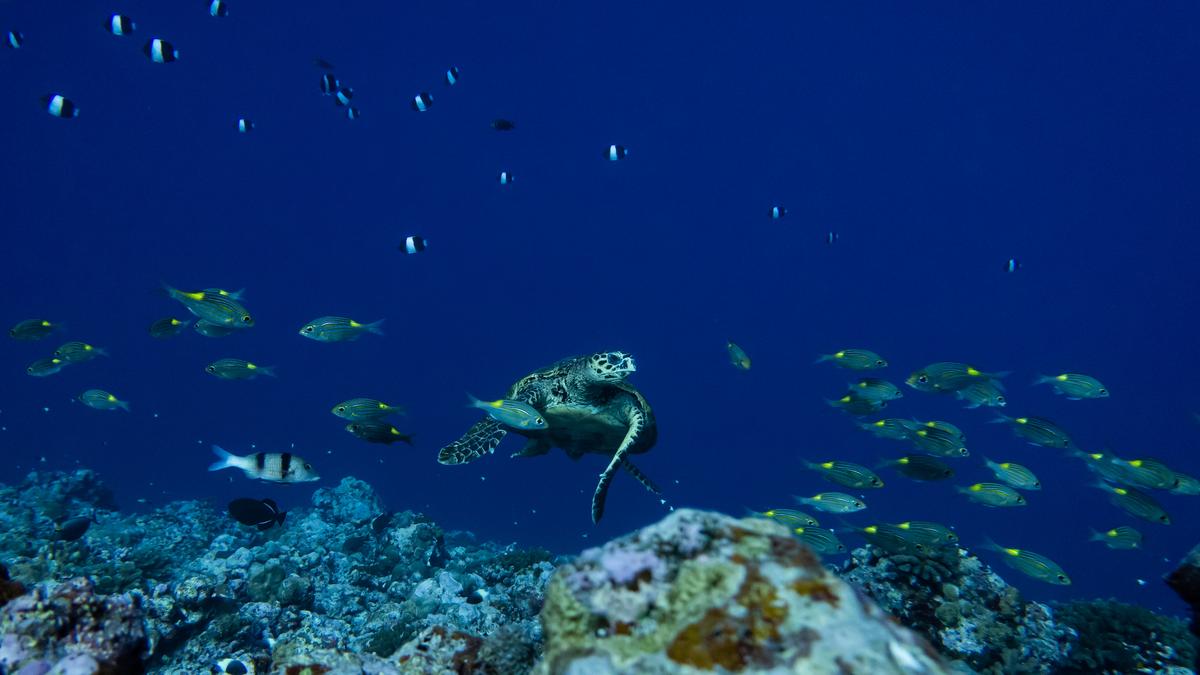Decline of Coral Reefs in Lakshadweep: A 24-Year Study

- 27 Jul 2025
In News:
A recent 24-year study (1998–2022) of coral reefs in the Lakshadweep Archipelago revealed that live coral cover has declined by nearly 50%, from about 37.2% to 19.1%. The research, conducted across three atolls—Agatti, Kadmat, and Kavaratti—highlights the severe impact of repeated marine heatwaves linked to climate change.
What are Corals?
Corals are small, soft-bodied marine invertebrates belonging to the Cnidaria group. Individual corals, called polyps, secrete a calcium carbonate exoskeleton, forming vast reef structures. Coral reefs provide crucial habitats for about 25% of marine life and support over 1 billion people worldwide with food, livelihoods, and coastal protection.
Types and Distribution:
India’s coral reefs are mainly found in the Gulf of Kutch, Gulf of Mannar, Andaman & Nicobar Islands, Lakshadweep Islands, and Malvan.
Causes of Coral Decline:
- Marine Heatwaves & Climate Change: Rising sea surface temperatures disrupt the symbiotic relationship between corals and their algae (zooxanthellae), causing bleaching and mortality.
- Ocean Acidification: Increased CO? lowers ocean pH, hampering coral skeleton formation.
- Pollution: Land runoff with fertilizers, pesticides, and heavy metals harms coral health.
- Physical Damage: Coastal development, sedimentation, and unsustainable fishing.
- Overfishing: Imbalance in reef ecosystems due to loss of algae-eating fish.
Key Findings from the Lakshadweep Study:
- Coral mortality from bleaching has decreased over time but so has the reefs’ recovery rate.
- Heat-sensitive coral species have largely disappeared, leaving more stress-tolerant species like Porites dominant.
- Recovery accelerates only if reefs are given at least a six-year gap between bleaching events.
- The 2010 marine heatwave was the most severe, with a Degree Heating Week (DHW) value of 6.7, indicating significant heat stress.
- The study emphasizes the need for longer recovery periods between bleaching for coral regeneration.
Implications for Conservation:
- The study provides a predictive framework to identify reefs vulnerable to bleaching and prioritize restoration.
- Local conservation must be combined with urgent global climate action to reduce the frequency of heatwaves.
- Without global intervention, even resilient coral species may not survive repeated disturbances.
This study underscores the vulnerability of India’s coral reefs, especially in Lakshadweep, to climate change and highlights the urgent need for integrated local and global conservation efforts.
